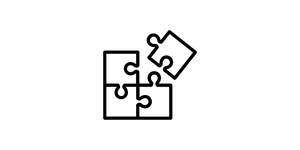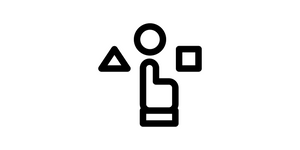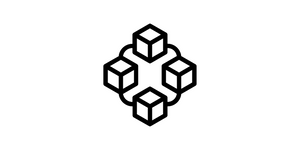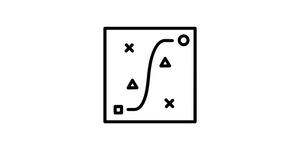You probably already have a collection of tools to learn new skills (even if you don't use them to learn), and in this session we looked at how we can fit them together in a way so they guide our attention in a way that we can learn.
Apart from software tools, we also dove into some mental tools. We discussed why practices like cramming, rereading, and simple highlighting are ineffective, and why counterintuitive approaches like forgetting and daydreaming work much better.
Watch the recording
Notes
4:15 Why become better at learning?
- If you're a knowledge worker, you're likely to face information overwhelm.
- Most skills are now digital, and technology moves fast.
- Using new technology, you can automate much of what you do repeatedly.
- When you know how to learn, you'll have more fun—even when the going gets tough.
7:10 Why deconstruct the skill of learning how to learn?
- Knowing how to learn is a skill in itself.
- The learning process leans on subskills like note-taking, reviewing knowledge, memorization, and deliberate practice—among others.
- As many courses are lacking, you need to take ownership over your learning process.
9:21 How to deconstruct a skill
- Deconstruction — What are the minimal learnable units, the LEGO blocks, I should start with?
- Selection — Which 20% of the blocks should I focus on for 80% or more of the outcome I want?
- Sequencing — In what order should I learn the blocks?
- Stakes — How do I set up stakes to create real consequences and guarantee I follow the program?
20:24 The subskills of learning how to learn
-
21:22 Defining desired outcomes
- Understanding
- For everything we do, we should have a clear goal in mind: an understanding of problems and being able to solve them.
- Only when you understand what problem you're trying to solve can you become an effective learner.
- Before you can master a skill, you need to know how to perform the individual steps.
- Solve problems
- Being a knowledge worker means that you consume information to solve business problems.
- As businesses become more complex, you encounter problems for the first time.
- Even when you know how to solve a skill, deepening your understanding and practicing makes you better and faster.
- Sharing knowledge
- Twitter has a low bar of entry, forces you revisit your notes, and serves a serendipity vehicle to meet like-minded people.
- Emails and memos help you describe problems, think of possible solutions, and gather feedback.
- Blogging help you to reflect on lessons learned and establish you as a thought-leader.
- When you write guides you become intimately familiar with the problem and solution.
- Courses help you to digest the concepts and skills to such a level that they become part of you, effectively making you an expert.
- Understanding
-
32:55 Choosing the right learning materials
- Aligning goals and materials
- Visualize your vision for the future.
- Identify your roles and corresponding responsibilities.
- Spot the skills that will bring you closer to your vision while helping you now with your roles and responsibilities.
- Choose the materials that will help you learn the 20% of ideas for 80% of the results.
- Find the community of learners and experts that you can turn to when you're stuck.
- Finding your preferred formats
- Limit the formats you learn from, as it makes mastery of each more likely.
- Books are cheap and condense hundreds of hours of research. But: cut out the fluff.
- Articles can contain gems, but you need to be able to spot the ones worth reading.
- Videos are useful to learn motor-skills, but you need to become an expert note-taker to fully learn from them as they're difficult to skim.
- Podcasts are great when batched to break into a domain, but difficult to learn from directly.
- Courses can take you from beginner to pro and give you access to an expert, but they tend to be costly and inefficient.
- Social media like Twitter can be a great place for (free) ideas and materials and to find your community of fellow learners
- Aligning goals and materials
-
42:00 Selecting the tools to learn
- Without technology, a learner’s mission becomes more complicated than is necessary.
- Don’t nerd out over tools because of the tools. Use the tools that help you solve a problem. Ask: does this tool make my life easier or more complicated?
- Use read-it-later apps and (web) highlighters to easily extract ideas and explanations from articles and books and process them later.
- Use tablets and e-readers to comfortably consume large amounts of information and process them.
- Use note-taking apps to capture your questions and insights. See it as taking care of your future self.
- Leverage integration services to let your highlights and notes flow into your second brain (likely your note-taking tool).
-
46:35 Leveraging tool-agnostic techniques
- 47:23 Reading
- See reading as an investment; you trade time and energy to become better in the future.
- Know why you're reading. What information are you looking for?
- Have a fixed way of approaching articles and books; don't figure out your approach as you're reading.
- Don't reread the same materials over and over; you won't learn more and only have the illusion of knowing.
- Sönke Ahrens: "Most organizational decisions can be made up front, once and for all, by deciding on one system. ... That leaves us with much more mental energy that we can direct towards more useful tasks, like trying to solve the problems in question.”
- 51:36 Highlighting
- Daniel Doyon (founder Readwise): If you highlight everything, you highlight nothing.
- One of the most common mistakes learners make is highlighting material without knowing why they do it.
- Take out the guessing; have a pre-defined way to highlight and limit yourself to one idea per highlight.
- Cultivate the mindset of a curator and ask yourself: "Am I highlighting this because it truly resonates with me, or because I think ‘I should know this’?"
- Do several passes of materials by skimming, reading and noticing interesting bits, before you highlight.
- Make highlights understandable out-of-context (i.e. when exported).
- Only capture the highlights that are most relevant to you.
- 54:42 Note-taking
- For every highlight, make a note in your own words.
- Explain ideas in your notes as if you're explaining them to someone else (you future self is also someone else).
- Use as little words as possible.
- Note-taking is just as much as about what you keep as what you choose to ignore.
- Tiago Forte: "By standardizing and streamlining both the format of our notes and the steps by which we process them, the real work can come to the forefront: thinking, reflecting, writing, discussing, testing, and sharing. This is the work that adds value, and now we have the time to do it more effectively."
- 1:00:21 Review
- The key: multiple passes. Ask about your highlights and notes: "What did I think was important and cool and is actually not important or cool?"
- To reinforce learning, allow for forgetting by keeping some days between highlighting and note-taking and reviewing them.
- Highlight the best parts of your highlights and notes (i.e. progressive summarization) and only save the ones you've marked up.
- Use a networked note-taking tool so you can link your notes and see where ideas transfer to other domains.
- If you want to have a conversation with your notes, start a Zettelkasten.
- 1:05:22 Memorization
- David Allen: "Your mind is for having ideas, not holding them."
- Only memorize what you need to know in an instant and have no time to look up when you need the knowledge.
- When you make practice active and spaced, allowing for some forgetting, you'll remember much more than when you'd cram.
- Use flashcards to program your attention using algorithms, taking out the guess work.
- Don't like flashcards? Test yourself with writing prompts to revisit ideas. Bonus points when combined with a spaced repetition algorithm.
- 1:09:20 Deliberate practice
- Ask yourself: "What's my biggest sticking point with skill x?"
- Design exercises that take you out of your comfort zone.
- Create something useful, repeatedly.
- 47:23 Reading
Resources
- How to Choose Your Next Skill
- How to choose skills worksheet
- The DiSSS framework by Tim Ferriss
- The First 20 Hours book
- How I take smart digital notes—Part 1: A map for the journey
- How I take smart digital notes—Part 2: Highlights and reading notes
- Starting a Zettelkasten in Roam Research
- Roamkasten - a practical how to guide to optimize Zettelkasten in Roam Research
- Learning a Language with Deliberate Practice
- Sunday School #21: Deliberate practice




